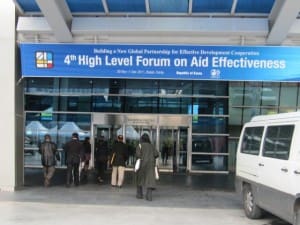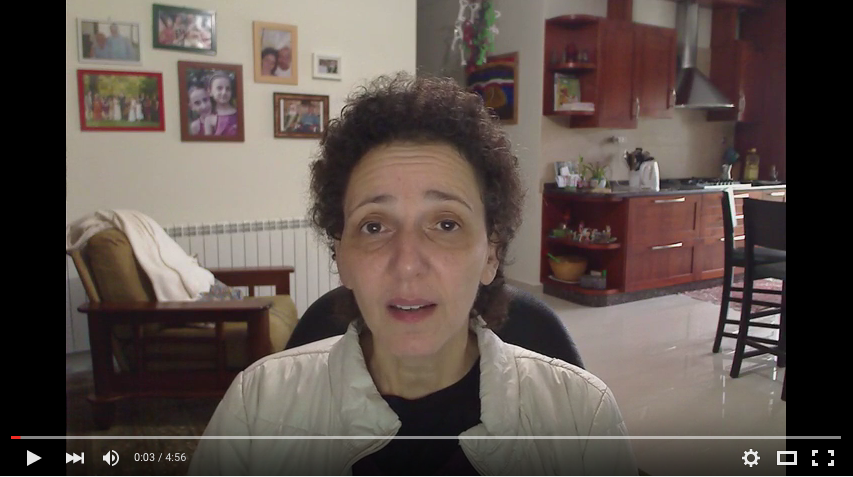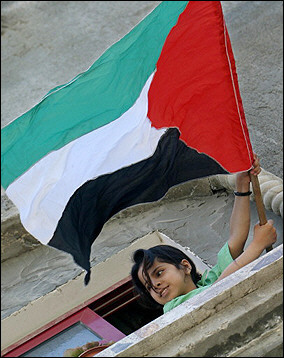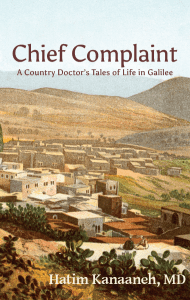This article first appeared in Al-Adab in Arabic and on Aid Watch Palestine’s blog in English.
“Transparency” has become a key element of the global aid discourse, but is this new rallying cry really revolutionary? Aid transparency advocates argue that effective development requires better aid data. They have started a veritable movement complete with databases, dedicated blogs, specialized NGOs, annual global reports and meetings, grant schemes and training opportunities – all dedicated to improving the transparency of aid.
As a result of these efforts, donors and other aid actors have committed to providing updated aid data that is easy to access, use and understand. Once these commitments are implemented, transparency of aid information should facilitate coordination, hinder corruption and mismanagement, and also expose over-spending and self-interest in aid policies. This could be revolutionary, especially if transparency places information in the hands of the people and upends power relations.
Of course aid information should be public. After all, Official Development Assistance (ODA) is generated from public tax money in donor countries and most of it is transferred to developing country partner governments (either directly as bilateral aid or through multilateral agencies like the World Bank or United Nations) where it goes to public budgets. In democratic countries, information about public funds should be, well, public.
But until now, information about international aid has been incomprehensible and unusable for many reasons: lack of disclosure by some donors, uneven disclosure across donors, lack of common reporting standards, late reporting, confusing layers of contracted relationships between donors and end beneficiaries leading to double counting. All this makes it essentially impossible for beneficiaries of aid or taxpayers in donor countries to build a full and accurate picture of what money comes in, where it goes, and what it achieves.
Some proponents of aid data transparency emphasize the technical objective of greater efficiency. They anticipate that standardized data will help eliminate gaps in knowledge due to missing data and duplication that can lead to double counting. They also argue that improved monitoring by donors and recipient governments will enable better decision-making. However, aid transparency is also frequently framed in terms of a more radical concept: accountability. The notion that aid information should be publicly available directly challenges the neo-colonial attitude embedded in many traditional development approaches: the civilized Western powers benevolently “doing something for” the unfortunate and incapable people of the Third World. Theoretically, if aid recipients have genuine access to useful information about aid, they can demand better policies or even refuse to work with certain donors.
Transparency of aid is not only fundamental to good aid practice, but is enshrined in international humanitarian law. The concept of Freedom of Information, which enshrines the legal right of citizens to access information, is also relevant. Many countries have national laws that guarantee transparency of certain information. In Palestine, however, the Palestinian Access to Information law, drafted in 2005, has been stalled for a decade.
Already, citizens of aid-dependent societies can demand information from their own national representatives using the concept of a “social contract” between citizens and their representatives. Also, recipient governments can already demand information from donors using the concepts of “mutual accountability” that are built into standards for development cooperation. What may be new is this: If new transparency commitments are implemented, citizens in aid-recipient societies will have a stronger basis from which to demand information directly from international donors.

This year, 2015, is the culmination of ten years of intensive aid transparency advocacy. The Paris Declaration, the outcome document of the 2nd High Level Forum on Aid Effectiveness in 2005, committed donors to “provide timely, transparent and comprehensive information on aid flows so as to enable partner authorities to present comprehensive budget reports to their legislatures and citizens.” Pressure from civil society and recipient governments in the run up to and during the 3rd High Level Forum in Accra in 2008 led to at least four clear commitments to greater transparency (p. 38). It also led to the launch of the International Aid Transparency Initiative (IATI), designed, in part, to support donors to meet their political commitments on transparency laid out in the Accra Agenda for Action. Three years later, in 2011, all the major development actors met at the 4th High Level Forum on Aid Effectiveness in Busan, Korea and committed to “implement a common open standard for electronic publication of timely, comprehensive and forward-looking information on resources provided through development cooperation.” Endorsers of the Busan Outcome Document committed to publishing to the common IATI standard by the end of 2015.
Transparency is also integrated into the Sustainable Development Goals process, the successor to the Millennium Development Goals. In September 2015, all major donors signed the Joint Declaration on Open Government for the Implementation of the 2030 Agenda for Sustainable Development, which includes a recommitment to the principles of transparency in the context of international development cooperation and “…citizen participation in the implementation of all the goals and targets in the 2030 Agenda for Sustainable Development, including decision-making, policy formulation, follow up and evaluation processes.”
The commitment to participation goes beyond the mere common data standard envisaged by IATI. The bundling of transparency with participation might suggest a new phase for aid transparency. If citizens are to engage genuinely in their own development, they need more than access to aid data; they will also need access to strategies, project plans, budgets, procurement policies, monitoring reports, evaluations, and more. They will need access to these materials in their own languages and before decisions are made to enable them to participate effectively. This fact was mentioned in the IATI feasibility study conducted in October 2010, but, notably, there is no mention of translation of key documents in the monitoring framework for transparency that is open for public consultation until February 2016.
In Palestine, the allocation of resources and agreement on policies is almost always made on the basis of documents that are not available in Arabic and through coordination mechanisms that do not share information in Arabic or in a timely way. For example, the UN and World Bank both present quarterly reports to the Ad Hoc Liaison Committee, the donor coordination mechanism for Palestine on the global level. Neither body regularly translates these reports into Arabic despite the significant impact these reports have on the daily lives of Palestinians. Another example is the 300-page, consultant-written “Detailed Needs Assessment and Recovery Framework for Gaza Reconstruction” published by the State of Palestine’s Ministerial Committee for the Reconstruction of Gaza in August 2015. It is only available in English and only on the website of the Local Development Forum — the donor coordination structure. Given that most documents related to aid in Palestine are in English, it is not surprising that the majority of Palestinians are excluded from effective participation in development cooperation.
It can be argued that providing timely information in Arabic is a huge undertaking fraught with expense and complications. Yet, is there any way to have real accountability or genuine participation if “transparent” materials are not available in Arabic? Why are all these materials produced in English in the first place? If Palestinians really led their own development agenda, strategies, plans, budgets, and evaluation reports would be first produced in Arabic — by Palestinians. The challenge would be translating them selectively into English so that international aid actors would know how to lend their support.
Clearly, while the concept of transparency is potentially revolutionary, aid actors will need to do much more than publish aid budgets and expenditures based on a standard format. The signing of new declarations and commitments is unlikely to spur the changes required. Aid recipients will probably need to make repeated demands for transparency of information they deem essential until donors and other aid actors realign their priorities, establish new work patterns, and make real beneficiary participation a priority. Of course, this will also require fundamental changes in Palestinian civil society as community members become aware of their rights and the responsibility that accompanies them.


